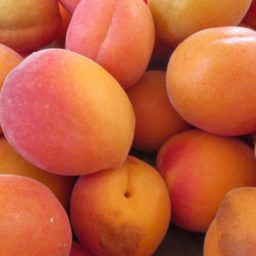
The greatest scientific discovery was the discovery of ignorance. Once humans realised how little they knew about the world, they suddenly had a very good reason to seek new knowledge, which opened up the scientific road to progress. | Yuval Noah Harari Continue reading The Greatest Scientific Discovery Was the Discovery of Ignorance Yuval Noah Harari

Implicit knowledge isn’t explicit knowledge that we’re not currently thinking about. Implicit knowledge isn’t there the way ore is buried. It’s “there” only in the sense that we can generate it when required. Most simply: That we can come up with an answer doesn’t mean that the answer was lying dormant in us all along. Answering questions is a … | David Weinberger Continue reading Implicit Knowledge Isn’t There the Way Ore Is Buried David Weinberger


We always know more than we can say, and we will always say more than we can write down. | Dave Snowden Continue reading We Always Know More Than We Can Say Dave Snowden

When we take knowledge that resides within the human mind and record it in written form, it is transformed into information. This information does not constitute knowledge. It requires a person – a “knower” – to interpret and process the written words, converting the information back into knowledge within their own mind. | David Gurteen Continue reading Information Does Not Constitute Knowledge David Gurteen

Knowledge alone is not power; it’s the potential for power. True power lies in the ability to act on knowledge. Overcoming barriers such as organizational culture, lack of resources, and inadequate influence is crucial. Embracing self-motivation, responsibility, and collaborative skills transforms knowledge into actionable power. Further Reading Don’t Try to Change People, Change How They … Continue reading Knowledge Alone Is Not Power Change Insight

The ability to perceive or think differently is more important than the knowledge gained. | David Bohm Continue reading Thinking Differently David Bohm

We get to knowledge — especially “actionable” knowledge — by having desires and curiosity, through plotting and play, by being wrong more often than right, by talking with others and forming social bonds, by applying methods and then backing away from them, by calculation and serendipity, by rationality and intuition, by institutional processes … | David Weinberger Continue reading We Get to Knowledge by Having Desires and Curiosity David Weinberger

Abstract This paper examines critically the origins and basis of ‘knowledge management’, its components, and its development as a field of consultancy practice. Problems in the distinction between ‘knowledge’ and ‘information’ are explored, as well as Polanyi’s concept of ‘tacit knowing’. The concept is examined in the journal literature, the Web sites of consultancy companies, … Continue reading The Nonsense of ‘knowledge Management’ Tom Wilson (2002)

Knowledge is power. Rather, knowledge is happiness, because to have knowledge – broad, deep knowledge – is to know true ends from false, and lofty things from low. To know the thoughts and deeds that have marked man’s progress is to feel the great heart-throbs of humanity through the centuries; and if one does not … Continue reading Knowledge Is Happiness Helen Keller (1903)

There’s no such thing as knowledge management; there are only knowledgeable people. Information only becomes knowledge in the hands of someone who knows what to do with it. | Peter Drucker Continue reading There’s No Such Thing as Knowledge Management Peter Drucker

We are in a constant, collective journey of storytelling, sense making, and creation. Knowledge is a conversation. It is not a static “thing,” but a continual process in motion, emerging in the shared communal learning space that arises between people. Every conversation reshapes our knowledge, modifying it to fit new circumstances, expanding it with new … Continue reading Sensing Our World Verna Allee

Knowledge is the capacity for effective action. There is no capacity for effective action in a database. | Peter Senge Continue reading There Is No Capacity for Effective Action in a Database Peter Senge

Knowledge is not a commodity to be stored and retrieved; it is a living, breathing entity birthed from the intricate dance of human interaction. It is a vibrant tapestry woven from the threads of human and non-human actors, engaged in a dynamic, ever-evolving network of collaboration and competition. People are not footnotes in this narrative; we are the heart and soul of KM. | David Griffiths Continue reading Knowledge Is Not a Commodity to Be Stored and Retrieved David Griffiths (2023)


It is largely because civilization enables us constantly to profit from knowledge which we individually do not possess and because each individual’s use of his particular knowledge may serve to assist others unknown to him in achieving their ends that men as members of civilized society can pursue their individual ends so much more successfully … | Friedrich Hayek Continue reading Civilization and Communal Knowledge Friedrich Hayek

Few people know how much you have to know in order to know how little you know. Credit: Walter Ong Comment: This phrase highlights the paradox of knowledge: the more we learn, the more we become aware of the vastness of what we don’t know. It reflects a deep intellectual humility, where gaining expertise in … Continue reading How Little You Know Walter Ong

Knowledge is the capacity for effective action. There is no capacity for effective action in a database. | Peter Senge Continue reading Knowledge Is the Capacity for Effective Action Peter Senge

If you are setting out to work in a new field you should thoroughly research that field. Right? Wrong! The traditional view is that you should read all that you can in order to get the base of existing knowledge and then move forward from this. There is a flaw in this argument and it is a flaw in the scientific method. We do not just get … | Edward de Bono Continue reading A Flaw in the Scientific Method Edward de Bono

Is knowledge knowable? If not, how do we know this? | Woody Allen Continue reading Is Knowledge Knowable? Woody Allen

For all our knowledge, we have no idea what we’re talking about. We don’t understand what’s going on in our business, our market, and our world. Knowledge Management shouldn’t be about helping us to know more. It should be about helping us to understand. So, how do we understand things? It’s through stories that we understand how the world works. | David Weinberger Continue reading For All Our Knowledge, We Have No Idea What We’re Talking About David Weinberger

The traditional assumption that “knowledge is power” and is used for personal gain is being subsumed by the notion that knowledge is an expression of the shared responsibilities for the collective well-being of humanity and the planet as a whole. | Jeremy Rifkin Continue reading Knowledge Is an Expression of Shared Responsibilities Jeremy Rifkin

Knowledge alone is not power. Self-motivation, taking responsibility, and the ability to act on knowledge and to influence and work with people, especially those in authority, is power. | David Gurteen Continue reading Knowledge Alone Is Not Power David Gurteen

Intelligence can be described as the ability to perceive or infer information, and to retain it as knowledge to be applied towards adaptive behaviors within an environment or context. | Wikipedia Continue reading What Is Intelligence? Wikipedia

Knowledge is not power. The ability to influence people, especially those in authority, is power. | David Gurteen Continue reading Knowledge Is Not Power David Gurteen

Introduction The objective is simple: “Better decision-making.” The only issue is that there are so many different views over what we mean by “better.” At the core of all decision-making is the need to balance Power with Responsibility, as the vehicle for resolving the “better” question. This article explores why that is so difficult? It … Continue reading The Issues at the Core of Ethical Decision-making and Leadership Bruce Lloyd (2009)


There are, in fact, four very significant stumbling blocks in the way of grasping the truth, which hinder every man however learned, and scarcely allow anyone to win a clear title to wisdom, namely, the example of weak and unworthy authority, longstanding custom, the feeling of the ignorant crowd, and the hiding of our own ignorance while making a … | Roger Bacon Continue reading The Four Stumbling Blocks to Truth Roger Bacon

Our most effective knowledge management tool is conversation. The words we choose, the questions we ask, and the metaphors we use to explain ourselves are what determine our success in creating new knowledge as well as sharing that knowledge with each other. | Nancy Dixon Continue reading Our Most Effective Knowledge Management Tool Is Conversation Nancy Dixon

The Knowledge Age of the past two decades is passing today as the digital revolution and artificial intelligence replace knowledge work. William Halal’s study of social evolution explains how this marks the passage to a new frontier beyond poorly understood knowledge — an “Age of Consciousness” is here. But more pandemics, climate change, gross inequality, … Continue reading Beyond Knowledge: How Technology Is Driving an Age of Consciousness by William E. Halal (2021)

The Knowledge Illusion | Steven Sloman AustraliaAustriaBrazilCanadaChinaCzech RepublicEgyptFranceGermanyGlobalIndiaItalyJapanMexicoNetherlandsPolandSaudia ArabiaSingaporeSpainTurkeyUAEUnited KingdomUnited States As an Amazon Associate, I earn a small commission when you purchase a book via this site. Posts where this book is embedded Knowledge Is Communal Most of our knowledge resides in other people The Knowledge Delusion We know far less than we … Continue reading The Knowledge Illusion: Why We Never Think Alone by Steven Sloman and Philip Fernbach (2018)
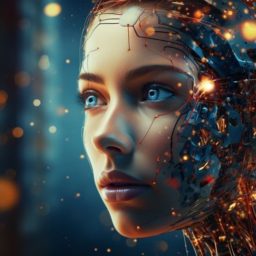
Understanding intelligence is important in an era shaped by rapid technological growth. Confusion often arises from unclear ideas about what intelligence really means, making it hard to distinguish between natural and human-made intelligence. Exploring the various types of intelligence and their roles in living beings and technology helps make this complex topic easier to grasp. Continue reading The Spectrum of Intelligence There are many types of intelligence

Humanity evolved in a natural world but now lives within a complex, interconnected one. Our old ways of understanding no longer match the systems we have built. A new way of thinking is needed—one that bridges our evolutionary past with the realities of the modern age. Continue reading Introduction: Two Worlds From evolution to entanglement

The Scientific Method Understanding Scientific Terms Close Pop-up all posts in this chapter What’s the Vibe? Please be patient as this may take up to a minute to load… Close Scientific knowledge is always open to change and revision. This provisional nature of knowledge can be misunderstood as a flaw in the scientific method, leading … Continue reading The Provisional Nature of Scientific Knowledge Understanding science as an ongoing process

Organizations and individuals face increasing complexity and uncertainty. Relying on isolated knowledge limits understanding and leads to biased decisions. Sharing ideas and insights through conversation helps people make sense of information, solve problems, and adapt to change together. Continue reading Introduction: Knowledge Management Knowledge Management is not an oxymoron
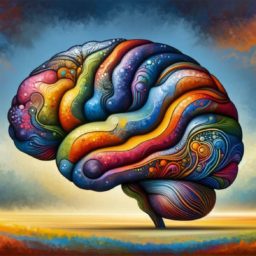
Effective Knowledge Management is crucial in today’s complex world, however, the distinction between terms like data, information, knowledge, explicit, tacit, and implicit knowledge can often be confusing. It is important to have a clear understanding of the differences. Continue reading Data, Information and Knowledge What’s the difference?

The Relationship Between Intelligence and Evolution ** Programmed Intelligence Close Pop-up all posts in this chapter What’s the Vibe? Please be patient as this may take up to a minute to load… Close Human intelligence is the capacity to acquire, process, and apply knowledge effectively, solving problems, adapting to new situations, and demonstrating creativity and … Continue reading Human Intelligence The capacity to acquire, process, and apply knowledge

Programmed Intelligence Biological Intelligence Close Pop-up all posts in this chapter What’s the Vibe? Please be patient as this may take up to a minute to load… Close Animal intelligence is the … Animal Intelligence Animal intelligence is … Animal intelligence is … Posts that link to this post The Spectrum of Intelligence There are many … Continue reading Animal Intelligence …

Animal Intelligence Systemic Intelligence Close Pop-up all posts in this chapter What’s the Vibe? Please be patient as this may take up to a minute to load… Close Biological intelligence is the natural cognitive abilities and adaptive behaviors of organisms, not including humans or animals, arising through evolution. Biological intelligence Biological Intelligence is the inherent … Continue reading Biological Intelligence The natural cognitive abilities and adaptive behaviors of organisms

Biological Intelligence Artificial Intelligence ** Close Pop-up all posts in this chapter What’s the Vibe? Please be patient as this may take up to a minute to load… Close Systemic intelligence is the emergent adaptive capacities that arise within complex systems comprised of interacting components. It is the system’s ability to self-organize, adapt, and respond … Continue reading Systemic Intelligence The adaptive, self-organizing ability within complex systems

Chatbots and Genai in Knowledge Management From Mind to Information – the Role of AI in Knowledge Encoding Close Pop-up all posts in this chapter What’s the Vibe? Please be patient as this may take up to a minute to load… Close As AI increasingly shapes our world, we need to consider its effect on … Continue reading Artificial Intelligence and the Quest for Knowledge Exploring the parallels between Plato’s Phaedrus and the challenges of GenAI
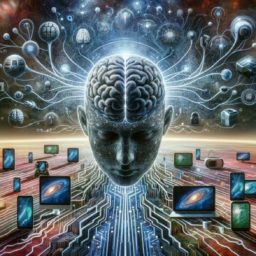
Artificial Intelligence and the Quest for Knowledge The Postproduction Paradigm – AI and the Art of Remixing Close Pop-up all posts in this chapter What’s the Vibe? Please be patient as this may take up to a minute to load… Close Knowledge exists in our minds, and traditional methods of encoding this knowledge into information … Continue reading From Mind to Information – the Role of AI in Knowledge Encoding The Evolution of Knowledge Encoding

Tacit knowledge is a type of knowledge that is difficult to express or communicate through words. It is a vital component of human expertise and plays a crucial role in enabling us to adapt to new situations, solve complex problems, and drive innovation and progress. Continue reading The Importance of Tacit Knowledge Tacit knowledge is knowledge that is difficult to transfer

Data, information, knowledge, and wisdom are often seen as a straightforward progression. But knowledge is not simply derived from information—it is shaped by curiosity, social interaction, and experience. Understanding how we actually come to know things requires moving beyond rigid models to embrace complexity, uncertainty, and human judgment. Continue reading The DIKW (data, Information, Knowledge, Wisdom) Pyramid The DIKW model

There are several ways of attempting to “know something” (acquiring knowledge). Some of them are more reliable than others. Continue reading Ways of Knowing Ways of acquiring knowledge

What Are Morals? The Argumentative Theory of Human Reason Close Pop-up all posts in this chapter What’s the Vibe? Please be patient as this may take up to a minute to load… Close Knowledge … Knowledge Our mind contains beliefs. We don’t know how these beliefs are stored, but it does not matter for my … Continue reading Knowledge and Information ** Knowledge and information are different substances


The Argumentative Theory of Human Reason Knowledge Is Communal Close Pop-up all posts in this chapter What’s the Vibe? Please be patient as this may take up to a minute to load… Close As individuals, we know almost nothing compared to what we think we know. Our individual knowledge is mostly a delusion. We are … Continue reading The Knowledge Delusion We know far less than we think we do

The Knowledge Delusion The Extended Mind Close Pop-up all posts in this chapter What’s the Vibe? Please be patient as this may take up to a minute to load… Close We think we know more than we do, but most of our knowledge exists in the minds of others. This shared understanding allows us to … Continue reading Knowledge Is Communal Most of our knowledge resides in other people
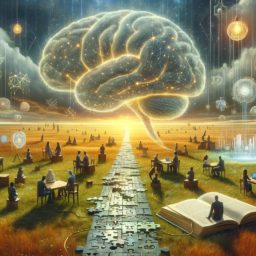
Knowledge Is Communal Opinion Polarization Close Pop-up all posts in this chapter What’s the Vibe? Please be patient as this may take up to a minute to load… Close Knowledge and cognition extend beyond our brains, involving people and objects around us. This distributed cognition means our thinking and decision-making are influenced by external factors. … Continue reading The Extended Mind The power of distributed cognition

Knowledge Management and Information Management are often conflated, but this confusion can be resolved by understanding the clear distinction between knowledge and information. Continue reading Knowledge and Information Management (KIM) Distinguishing Knowledge Management from Information Management

Is knowledge power, or is it potential power? And if knowledge is not power, what is power? Continue reading Knowledge Is Not Power Our ability to influence people is power




















